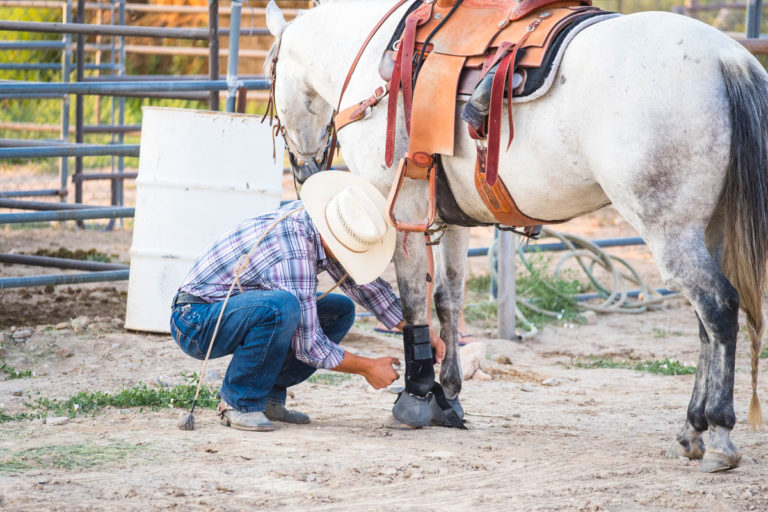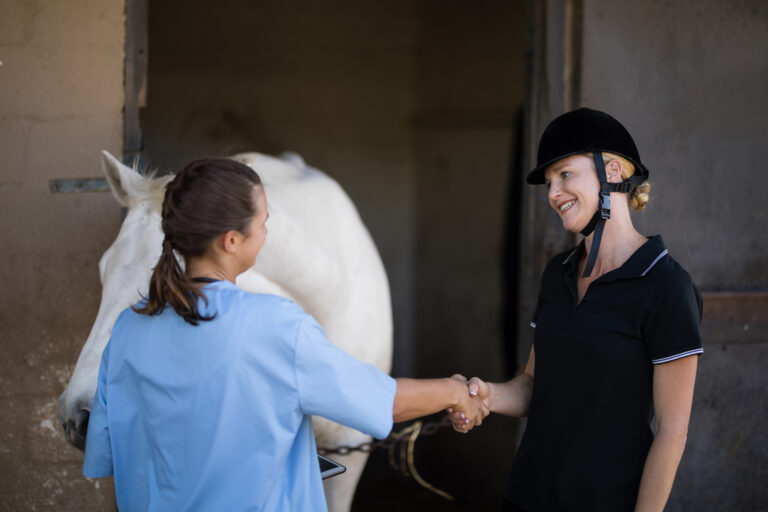
Optimal cardiovascular function is fundamental to the horse’s success as an athlete. While suspected disorders tend to cause immediate despondency for riders, for the veterinarian it’s all about the challenge of differentiating clinical problems from normal cardiac variation. To help, the Equine Veterinary Journal (EVJ) is giving equine vets free access to the latest science on equine cardiac arrhythmias.
The online publication this month of a virtual issue of 20 papers relating to irregular hearts and performance horses helps to support the interpretation of clinical observations with the evidence available.
“Assessing disturbances of heart rhythm is a frequent activity for any clinician working with performance horses,” said Peter Physick-Sheard, who is joint editor of the collection with Joann Slack. “Unreasonable expectations may be the underlying problem when output does not rise to the desired level, but competitive owners and trainers are always anxious to determine if there is something ‘fixable’ that might explain a slight loss of edge or a troubling skipped beat.”
The substantial virtual collection includes papers published in both Equine Veterinary Journal and Equine Veterinary Education. Together they provide a valuable source of evidence to determine what is or is not of clinical significance in cardiac arrhythmia and what might represent the best course of action, if action is needed, within the requisite parameters of safety and welfare.
With an editorial written jointly by Peter Physick-Sheard and Joann Slack the virtual collection explores:
- The significance of cardiac auscultatory findings in horses: Insight into the age‐old dilemma
- Abnormalities detected at pre‐purchase examination of National Hunt racehorses presented at sale
- The role of catastrophic injury or sudden death of the horse in race-day jockey falls and injuries in California, 2007-2012
- Occurrence of cardiac arrhythmias in Standardbred racehorses
- Evaluation of heart rate and rhythm during exercise
- Exercising arrhythmias and sudden cardiac death in horses: Review of the literature and comparative aspects
- Sudden death in sport and riding horses during and immediately after exercise: A case series
- Practical considerations for diagnosis and treatment of ventricular tachycardia in horses
- Thoracic aortic rupture in horses
- Ontario Racehorse Death Registry, 2003-2015: Descriptive analysis and rates of mortality
- Sudden death in racing Thoroughbred horses: an international multicentre study of post mortem findings
- Estimates of heritability of atrial fibrillation in the Standardbred racehorse
- Atrial premature depolarisations five days post electrical cardioversion are related to atrial fibrillation recurrence risk in horses
- Heart rate variability parameters in horses distinguish atrial fibrillation from sinus rhythm before and after successful electrical cardioversion
- Assessment of systolic and diastolic function in clinically healthy horses using ambulatory acoustic cardiography
- Attenuation of the blood pressure response to exogenous angiotensin I after oral administration of benazepril to healthy adult horses
- Preliminary investigation of orally administered benazepril in horses with left-sided valvular regurgitation
- Pharmacokinetics and electrophysiological effects of sotalol hydrochloride in horses
- First catheter-based high-density endocardial 3D electroanatomical mapping of the right atrium in standing horses
- Three dimensional ultra-high-density electro-anatomical cardiac mapping in horses: methodology
Professor Celia Marr, Editor of the EVJ said: “In terms of day-to-day veterinary work, rhythm disturbances are a frequent frustration during pre-purchase examinations or perceived poor performance assessments. This outstanding collection brings to hand the most recent evidence to help clinicians support their observations, facilitating diagnosis and a treatment plan in this challenging area.”
The virtual issue can be downloaded here.
EVJ is an unrivaled international equine veterinary science journal owned by the British Equine Veterinary Association. The journal strives to publish clinically orientated research and was first published in 1968. It now appears bi-monthly with around 128 pages per issue.








